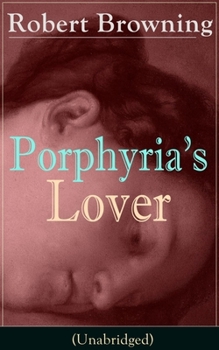Porphyria's Lover (Unabridged): A Psychological Poem from One of the Most Important Victorian Poets and Playwrights, Regarded as a Sage and Philosophe
In "Porphyria's Lover," Robert Browning masterfully explores themes of love, desire, and moral ambiguity through the lens of dramatic monologue, a form he famously perfected. The poem opens with a powerful scene of a stormy night, contrasting nature's tumult with the intimate and passionate meeting of Porphyria and her unnamed lover. The chilling climax, where the lover murders Porphyria to preserve a moment of ideal love, invites readers to grapple with complex questions about power, madness, and the nature of affection. Browning's distinctive use of enjambment and rich imagery not only captivates but also serves to enhance the psychological depth of his characters, situating the poem within the Victorian context of exploring the darker aspects of human emotion. Robert Browning (1812-1889) was an influential English poet whose work often delved into historical and psychological themes. His early struggles for recognition culminated in the innovative use of dramatic monologue, enabling him to express the inner thoughts and conflicts of his characters. Browning's interest in the moral dilemmas surrounding passion and desire reflects the turbulent socio-political landscape of his time, particularly regarding issues of class and gender. "Porphyria's Lover" is recommended for readers interested in psychological complexity and the exploration of the human psyche. It offers a compelling blend of beauty and horror that showcases Browning's poetic brilliance. For those who appreciate literature that challenges moral perceptions, this poem serves as an essential study.
Format:Paperback
Language:English
ISBN:8026890957
ISBN13:9788026890959
Release Date:December 2018
Publisher:E-Artnow
Length:96 Pages
Weight:0.31 lbs.
Dimensions:0.2" x 6.0" x 9.0"
Customer Reviews
0 rating





